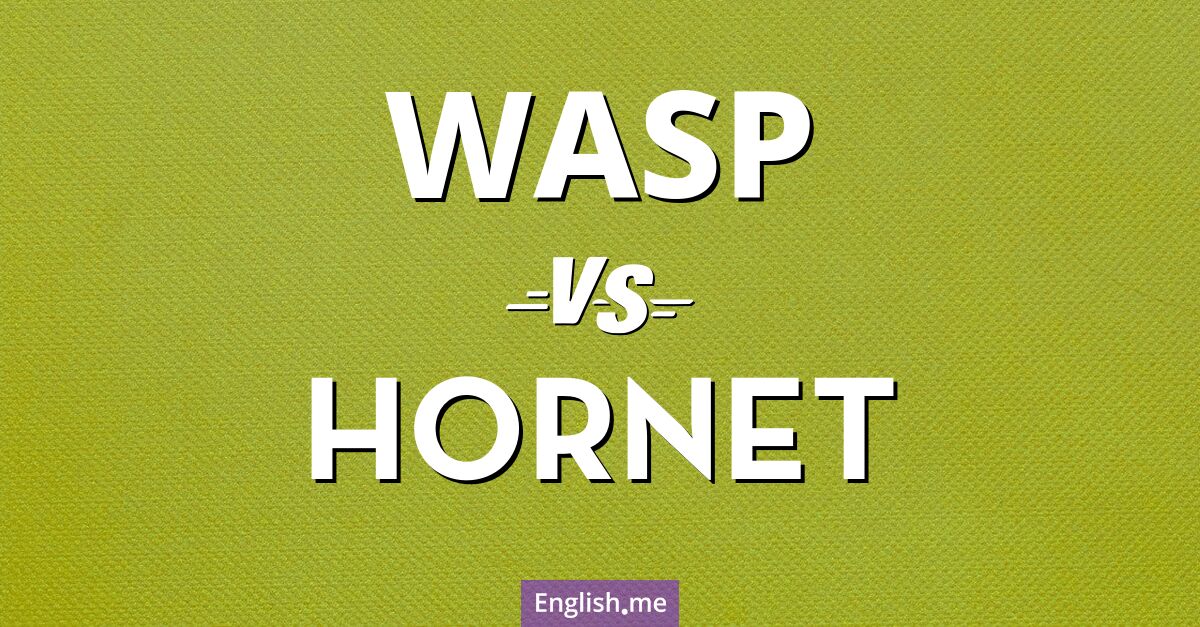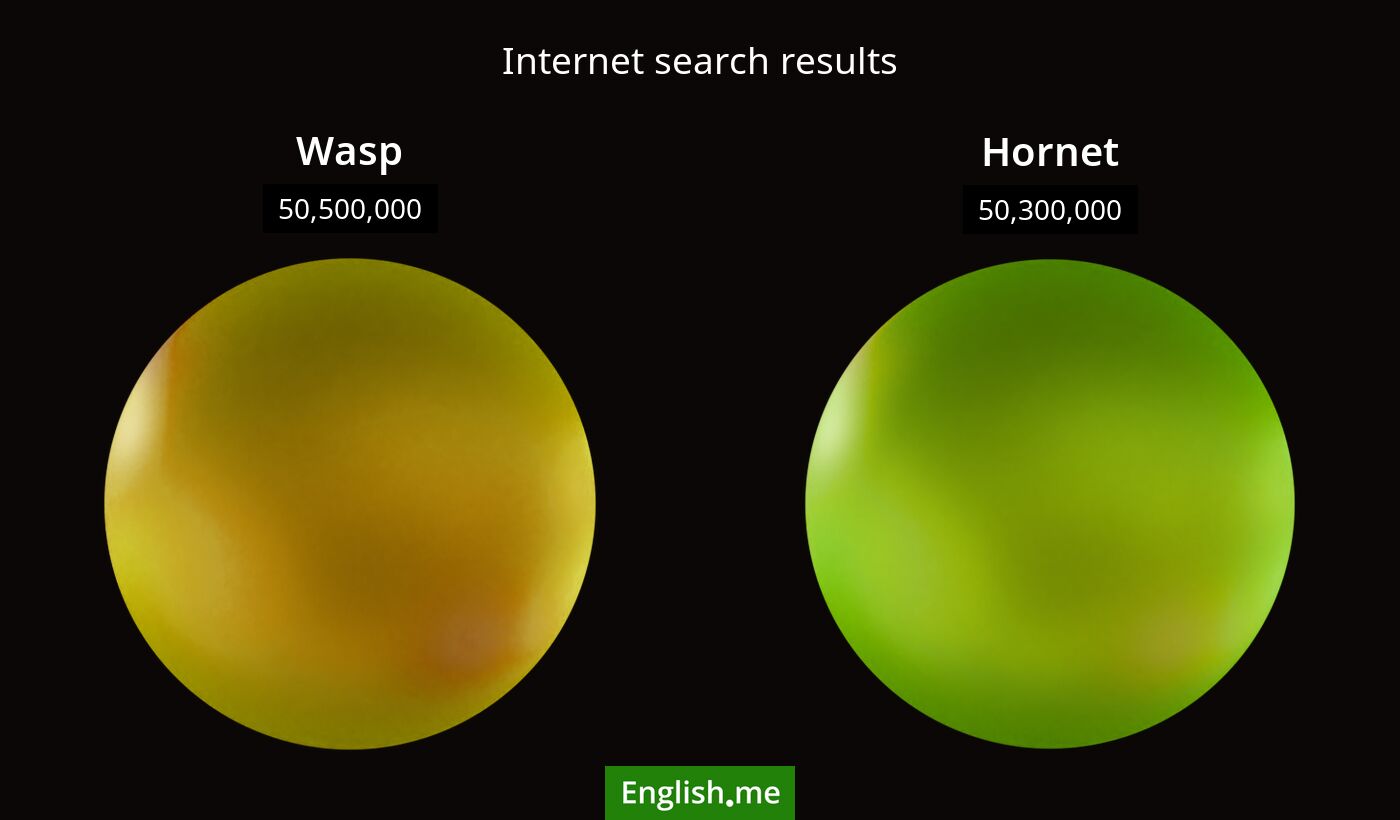"Wasp" vs. "hornet": spotting the difference
Reviewed and edited by  Anwar Kareem 29/03/2025, 12:21
Anwar Kareem 29/03/2025, 12:21
English.me team member

 What is similar?
What is similar?
Both wasps and hornets are insects belonging to the Vespidae family, have a similar body structure with narrow waists and wings, and can sting as a defense mechanism.
 What is different?
What is different?
Hornets are generally larger and more aggressive than most wasps. Hornets have a more robust, rounded abdomen and are usually characterized by their brownish and orange color, while wasps often have slimmer bodies with yellow and black markings. Additionally, hornet nests are often larger and made from chewed wood fibers, while wasps may construct smaller nests or build them in various structures.
 Which one is more common?
Which one is more common?

 Examples of usage
Examples of usage
Wasp- The wasp flew around the garden, landing on the flowers one by one.
- I noticed a wasp nest forming under the roof of our porch.
- Wasps play an important role in controlling pest populations.
- A hornet buzzed loudly near the window, startling everyone in the room.
- Hornets are usually bigger than most wasps and have a more painful sting.
- I saw a hornet's nest hanging high in the tree near the park.

 English
English español
español française
française italiano
italiano deutsche
deutsche 日本語
日本語 polski
polski česky
česky svenska
svenska Türkçe
Türkçe Nederlands
Nederlands